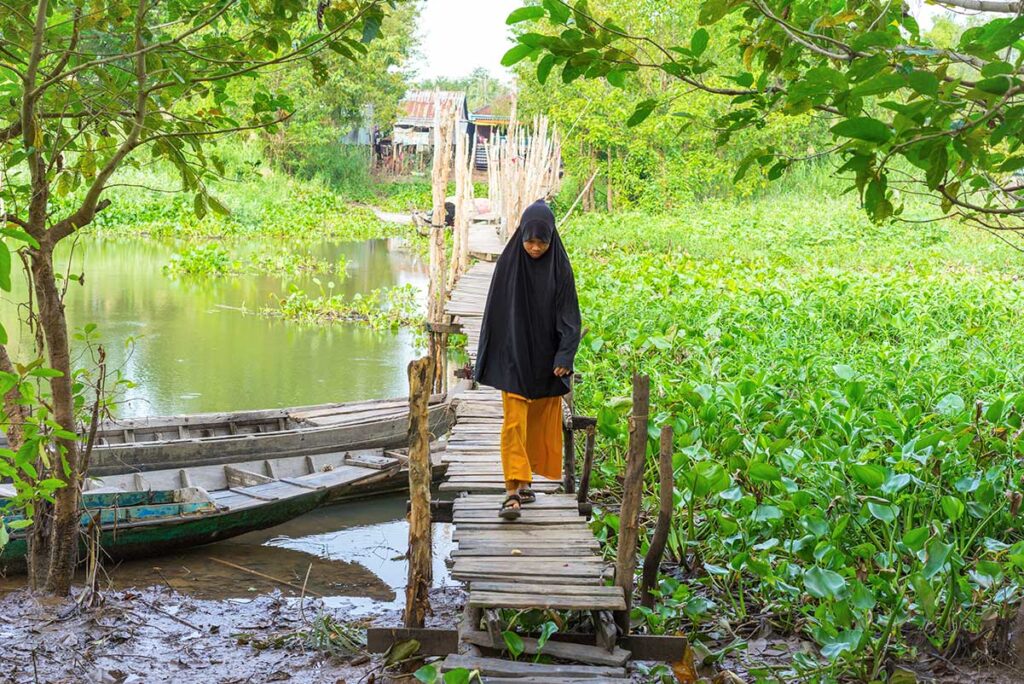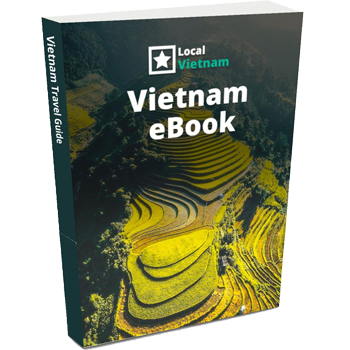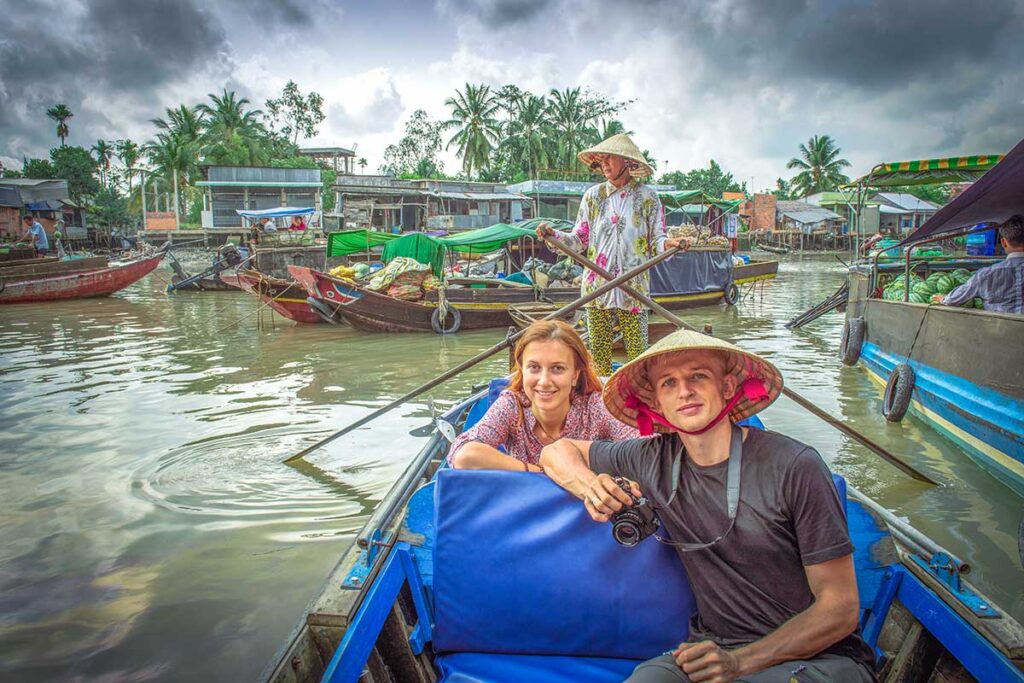What is Chau Giang Cham Village?
Chau Giang Cham Village is one of several Cham Muslim communities along the Hau River in An Giang Province. It is not a museum or staged village, but simply a place where Cham families live, work, and practice their religion. For travelers, it gives an accessible glimpse into Cham culture—especially weaving, stilt house architecture, and mosque life—without leaving the Chau Doc area.
History of the Cham in Vietnam
The Cham people originally come from the ancient Champa Kingdom, which once ruled parts of central Vietnam between the 2nd and 15th centuries. After conflicts and the fall of Champa, many Cham migrated southwards and into Cambodia. From there, groups eventually settled along the rivers of An Giang, where they continue to live today.
A key difference is that while many Cham communities in central Vietnam remain Hindu or Buddhist, the Cham in An Giang are almost entirely Muslim. Their religion shapes daily life: from the presence of mosques and Islamic schools to traditions around dress, food, and festivals like Ramadan.
Origins and development of the village
Chau Giang is part of Chau Phong Commune in Tan Chau Town, opposite Chau Doc across the Hau River. It is one of three Cham hamlets in the area—together with Phum Soai and Hoa Long—that have long been home to Cham Muslims. The location by the river was practical: stilt houses protected families from flooding, and the river made trade and fishing easier.
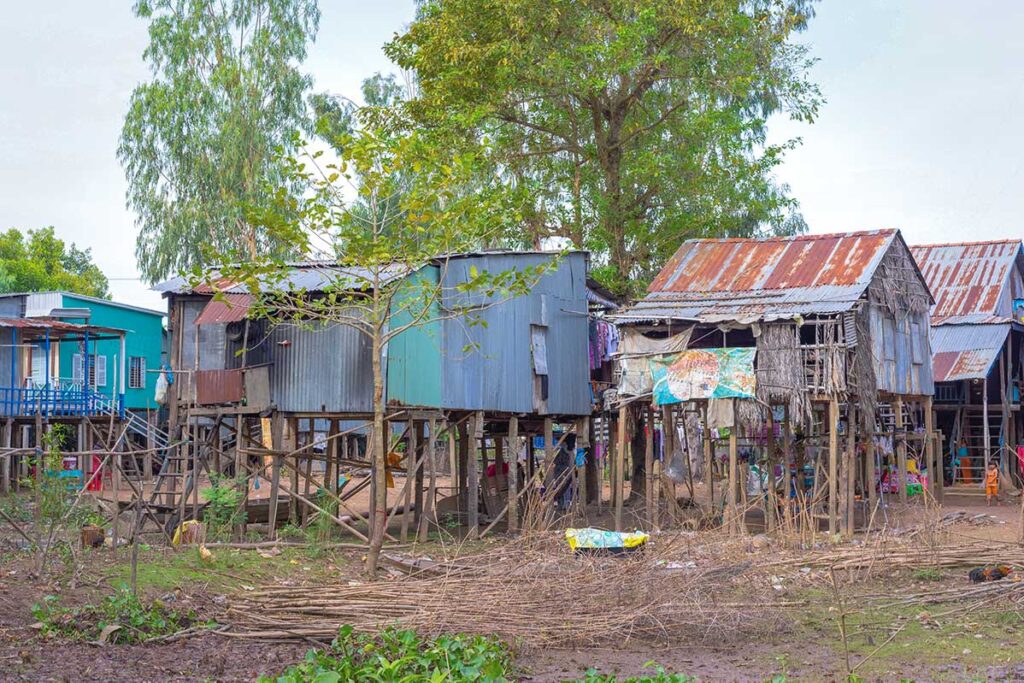
Over time, weaving became another economic mainstay. Families produced brocade textiles both for their own use and for sale. In the past, many households were poor and vulnerable to erosion along the riverbank, but resettlement projects and paved village roads have stabilized life in recent decades.
Chau Giang Village today
Today, the village is still a living community with a few thousand Cham residents. Walking around, you see children going to Islamic schools, women wearing scarves, and families running small shops or working on looms. While tourism has become a small part of the local economy, most people are focused on their daily lives.
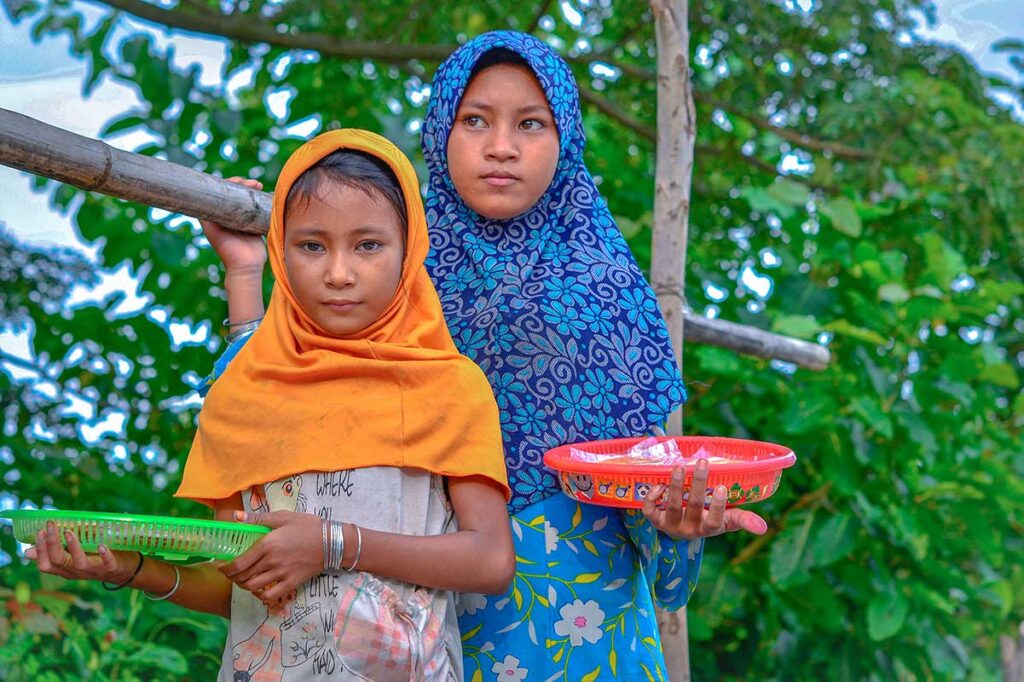
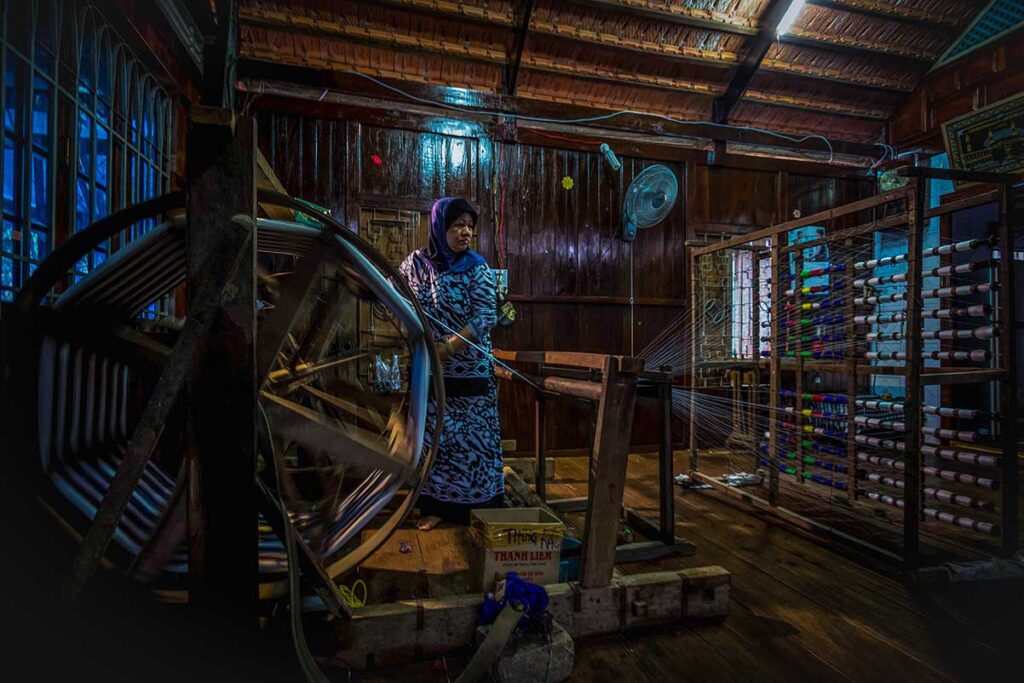
Weaving cooperatives have been set up with government support, and some families open their homes for visitors to watch traditional brocade being made. You’ll also find simple halal eateries, snack stalls, and small shops selling scarves and handmade souvenirs. Overall, Chau Giang is not polished for tourism—it feels like an ordinary riverside village where outsiders are welcome to look, learn, and buy directly from the artisans.
What to see and do in Chau Giang Cham Village
Visiting Chau Giang is less about checking off major sights and more about wandering through a community that has kept its own way of life for centuries. These are the main things you can see and do while exploring the village.
1. Walk through the wooden stilt houses
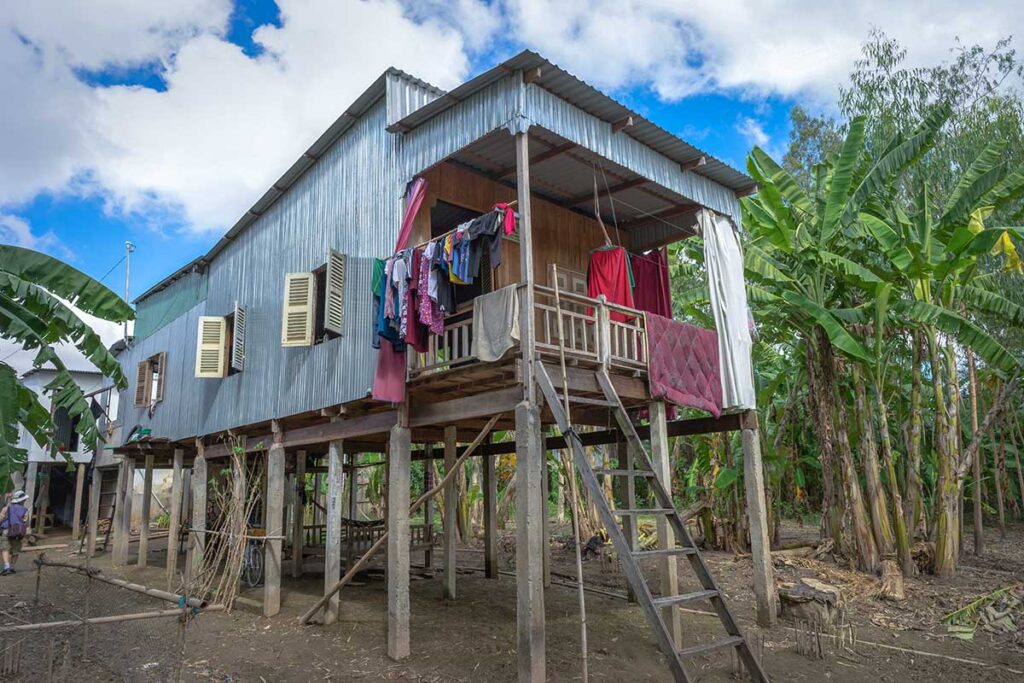
The most striking feature of the village is its tall wooden stilt houses, built high above the ground to cope with seasonal floods. Many are made of hardwoods and designed with wide, airy interiors. Traditional homes often have either four or five rooms, with the façade facing south for good feng shui.
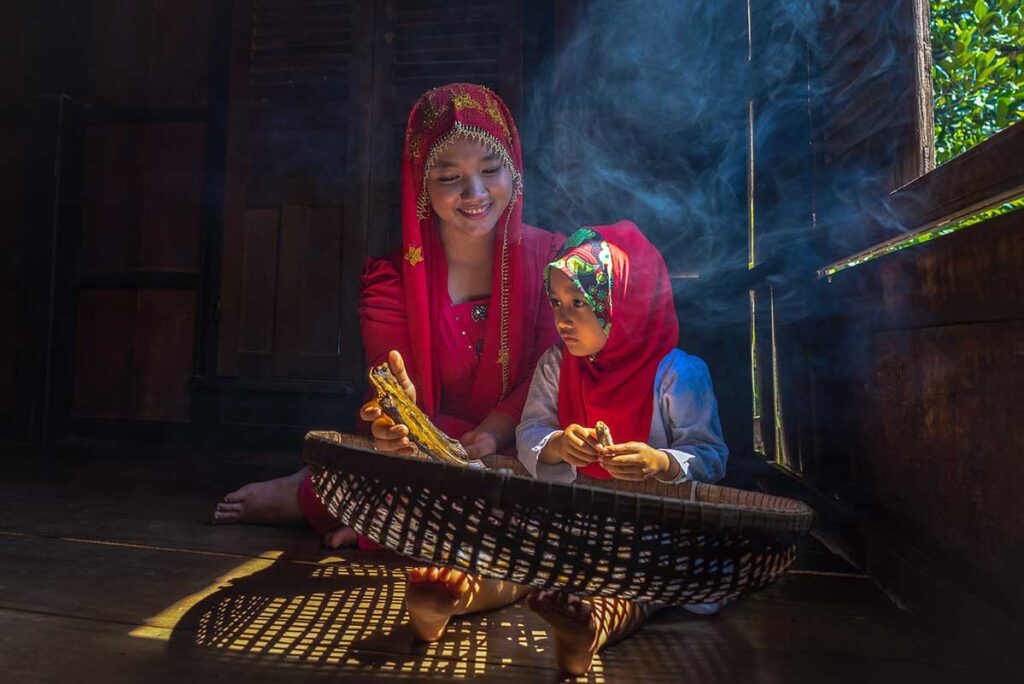
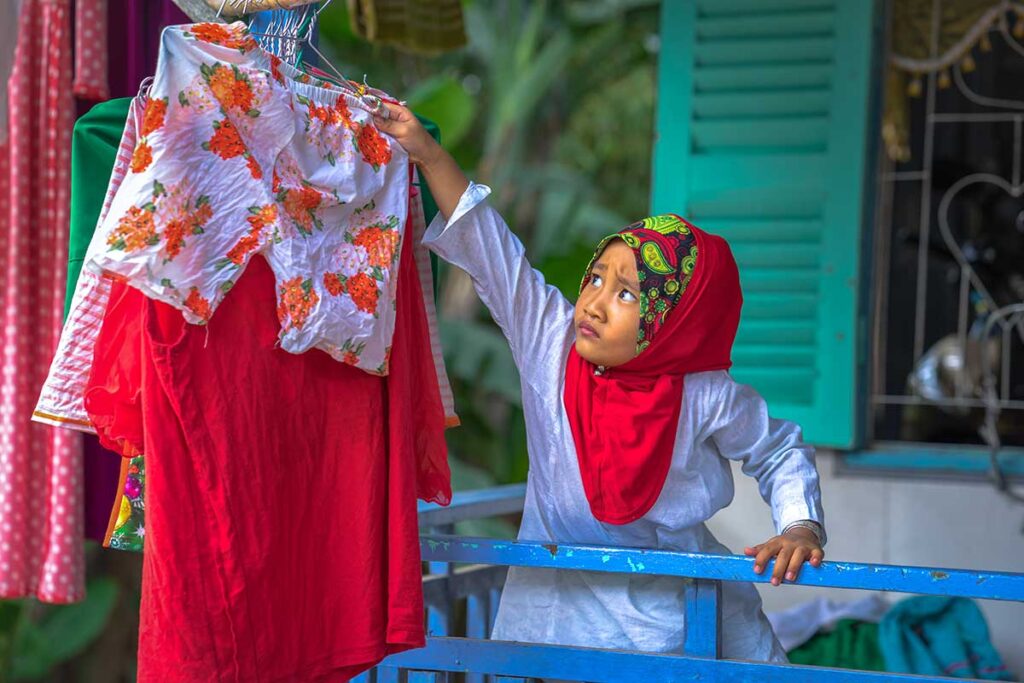
One custom is that doors are deliberately lower than head height, so anyone entering must bow slightly—an automatic gesture of respect to the host. Inside, there’s usually a clear division: the front rooms for receiving guests, while the inner part of the house is reserved for women and family life, where men and outsiders are not supposed to enter.
2. Visit Jamiul Azhar Mosque

This mosque is one of the key religious and community centers of Chau Giang. Its architecture features domes and the familiar crescent-and-star motif, making it easy to recognize from a distance. While non-Muslim visitors are generally not allowed inside during prayer times, you can walk around the courtyard, admire the exterior, and observe how central it is to daily life in the village.
3. See the Mubarak Mosque (Chau Phong)
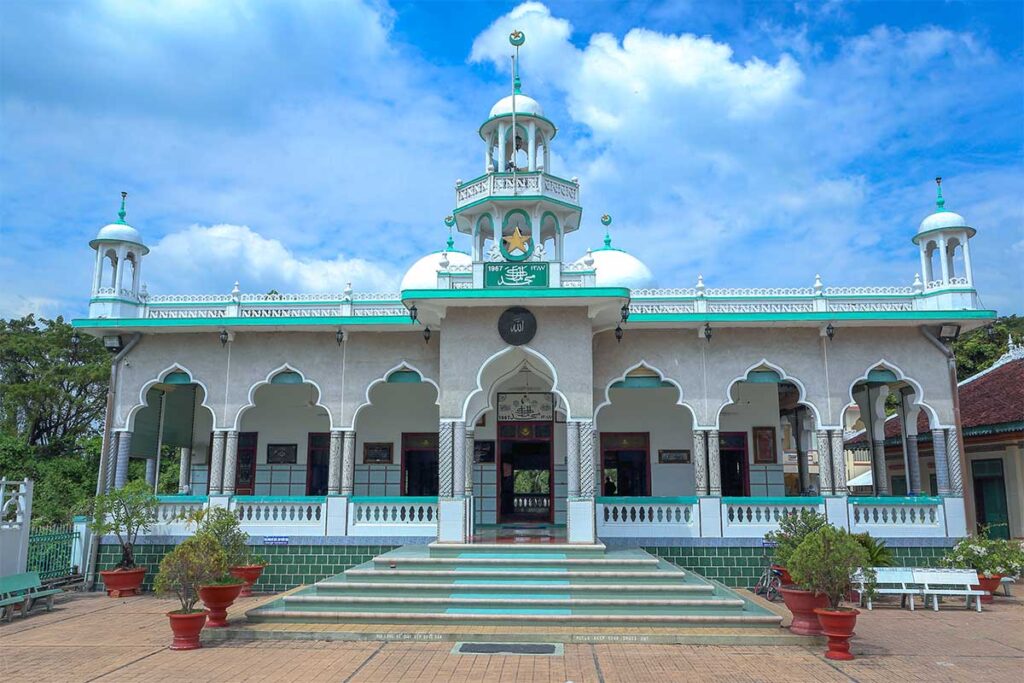
Nearby Chau Phong Hamlet is home to the Mubarak Mosque, considered a national heritage site and one of the most important mosques of the Cham in An Giang. It is recognizable by its oval-shaped roof tower with crescent and star symbols of Islam. Beyond architecture, it is a hub of Cham religious practice and plays a major role during festivals such as Ramadan.
4. Traditional Cham weaving workshops
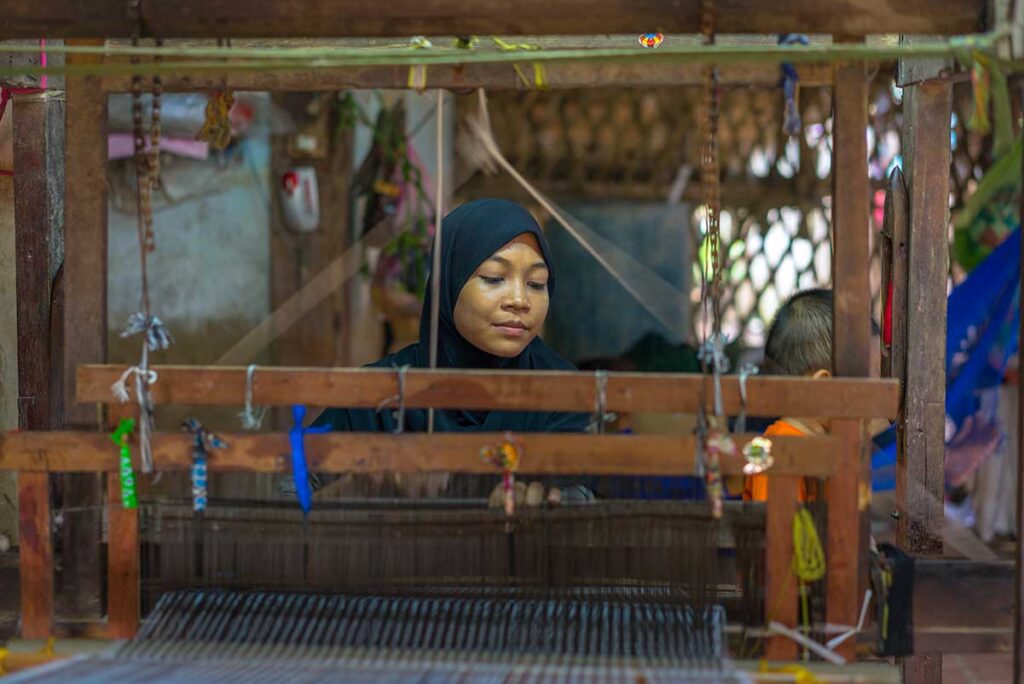
Brocade weaving is the craft Chau Giang is best known for, officially recognized as a national intangible cultural heritage. Several households open their workshops to visitors, where you can watch artisans working on wooden looms and sometimes see how threads are dyed with natural colors.
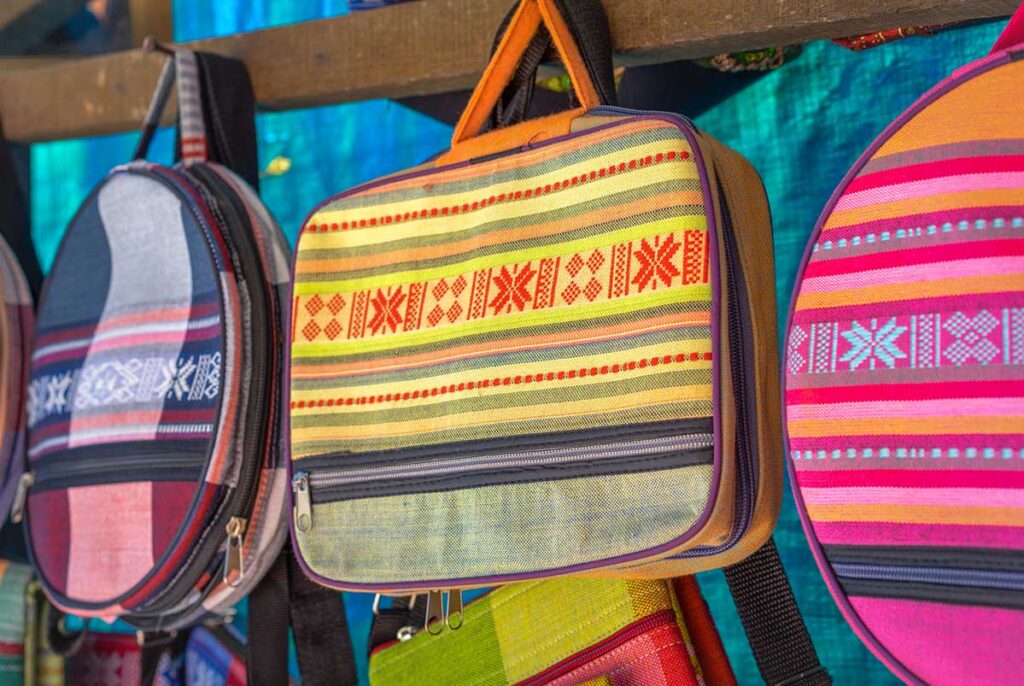
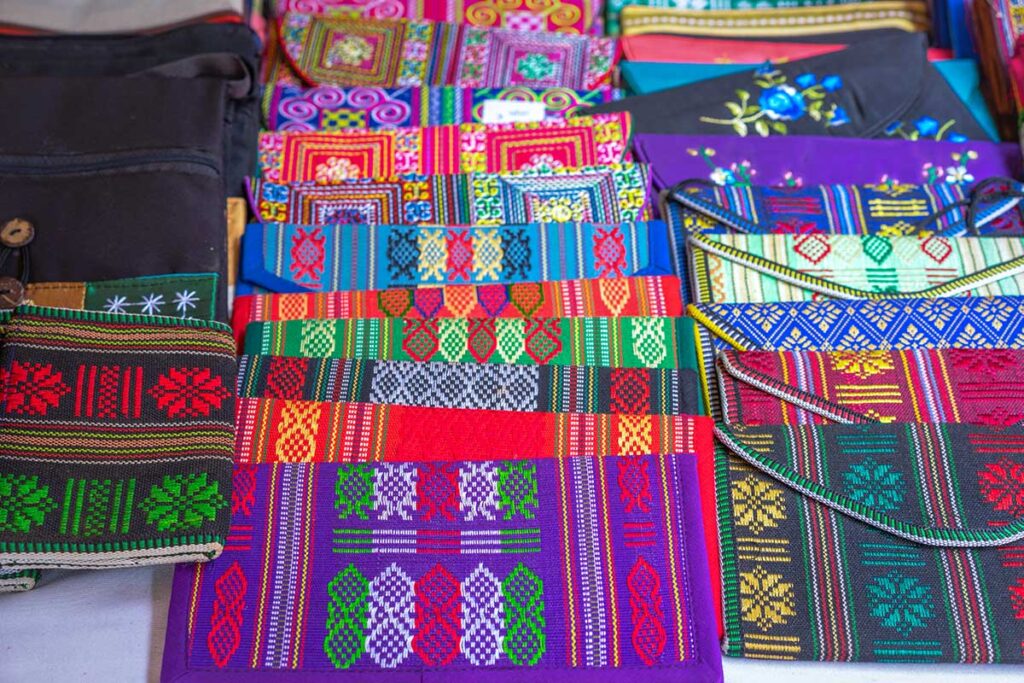
Many visitors buy directly from the weavers—scarves, sarongs, or bags. A practical note: not every item sold in the village is handmade locally; some cheaper products are imported. If you want something authentic, don’t hesitate to ask the seller which ones are truly woven here.
5. Buy local souvenirs & food
Apart from brocade, you’ll find simple stalls selling handmade jewelry and halal Cham snacks. A couple of traditional dishes worth trying are Com ni (rice cooked with milk, often served with raisins) and Ca pua (a beef curry flavored with coconut milk, peanuts, and spices). For something lighter, look for rice cakes or sweet bean drinks sold by local women. Don’t expect a restaurant scene here—the food is simple but gives you a taste of Cham cooking.
6. Combine with a boat trip around Chau Doc
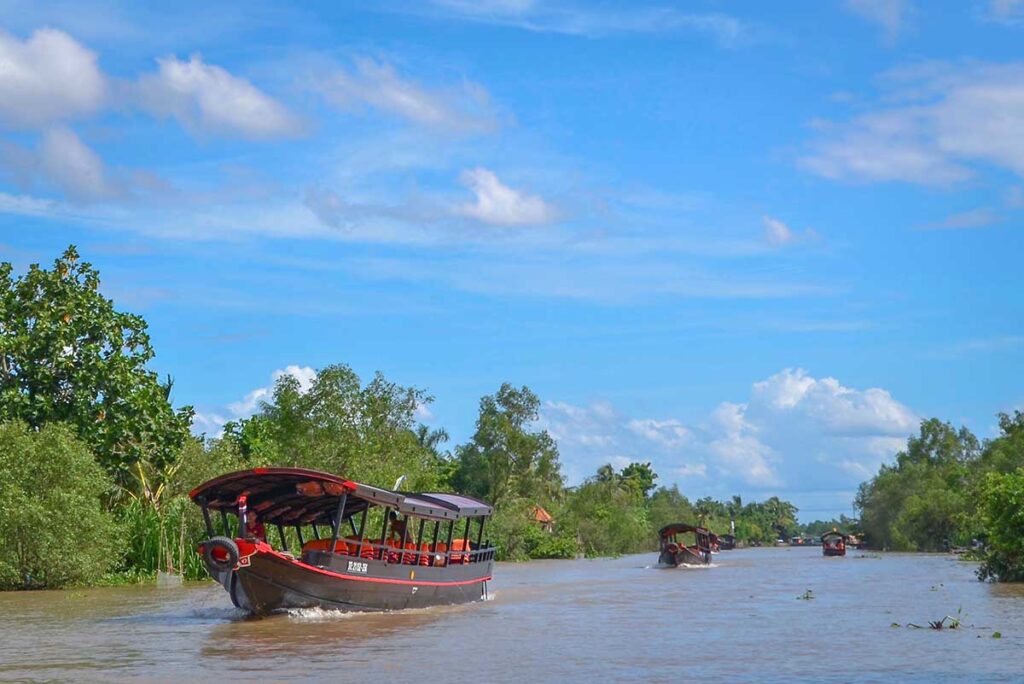
Many travelers visit Chau Giang as part of a boat trip from Chau Doc, which also includes floating fish farms and riverside villages. This is an enjoyable way to see the area, especially if you only have a short time, as the boat links several highlights of the Hau River in one excursion.
How to visit Chau Giang Cham Village
Chau Giang is located just across the Hau River from Chau Doc town, making it one of the easiest cultural side trips in An Giang. There are several ways to get there, depending on your time, budget, and how much flexibility you want.
Getting to Chau Doc
Chau Doc is the nearest base, about 250 km (6–7 hours by bus or car) from Ho Chi Minh City. You can reach it by long-distance bus, private transfer, or as part of a Mekong Delta tour. Chau Doc itself is worth a stop, with its floating villages, markets, and nearby Sam Mountain, so most travelers spend at least a night here.
By tour
The simplest way to see Chau Giang is on a boat tour from Chau Doc. Most tours combine the Cham village with a visit to floating fish farms and riverside life along the Hau River. This is the most popular option because everything is arranged for you and a guide can explain the background.
By taxi or private car
If you prefer independence, you can hire a taxi or private car in Chau Doc to cross the river and reach the village directly. It’s quick and straightforward, but you’ll miss the river experience unless you also arrange a boat trip.
Renting motorbike
Motorbike rental is available in Chau Doc for those who want more freedom. The route is simple: cross the Chau Doc bridge, turn left, and you’ll soon spot the Jamiul Azhar Mosque. It’s a convenient way to explore, though traffic can be busy around the town, so some experience with Vietnamese roads helps.
Cycling
Cycling is a great option for visiting Chau Giang. The distance from Chau Doc is short, the roads are flat, and riding through the countryside makes for a more relaxed experience than on a motorbike. If you have the time, cycling allows you to explore at your own pace and stop at small shops along the way.
Boat from Chau Doc
If you want a more atmospheric approach, take a boat directly across the river. Boats can be hired at Chau Giang wharf or Chau Doc junction, and the ride only takes about 15–20 minutes. Prices are usually reasonable, and traveling by water gives you a sense of how important the river is to local life.
Tips for visiting Chau Giang Cham Village
A visit to Chau Giang is straightforward, but a few simple preparations will make the experience smoother and more respectful.
- Go by boat from Chau Giang wharf – Approaching the village by river is more atmospheric than by road and gives you a glimpse of daily life along the Hau River.
- Dress modestly – Especially if you plan to step near or inside mosques. Cover shoulders and knees, and women should bring a scarf to cover their head.
- Bring cash – Payments for boat rides, souvenirs, or snacks are all in cash. Don’t expect ATMs or card facilities in the village.
- Respect religious customs – Always ask before entering homes or workshops. Keep in mind that living areas are divided between men’s and women’s spaces, and not all areas are open to visitors.
- Language barrier – Very few people speak English, but locals are generally warm and welcoming. A smile and gestures go a long way, and buying something small is a good way to connect.
Is Chau Giang Cham Village worth visiting?
If you’re already in Chau Doc, then yes—Chau Giang Cham Village is one of the most rewarding cultural stops. It feels authentic and is not overly touristy, unlike some “local villages” you may find in other parts of the Mekong Delta.
That said, it isn’t a full-day destination on its own. The village is small, and while walking around, visiting a mosque, and seeing weaving workshops are worthwhile, the experience is best when combined with a boat trip to Chau Doc’s floating villages and fish farms. Taken together, it makes for a memorable half-day excursion that adds depth to your time in An Giang.
